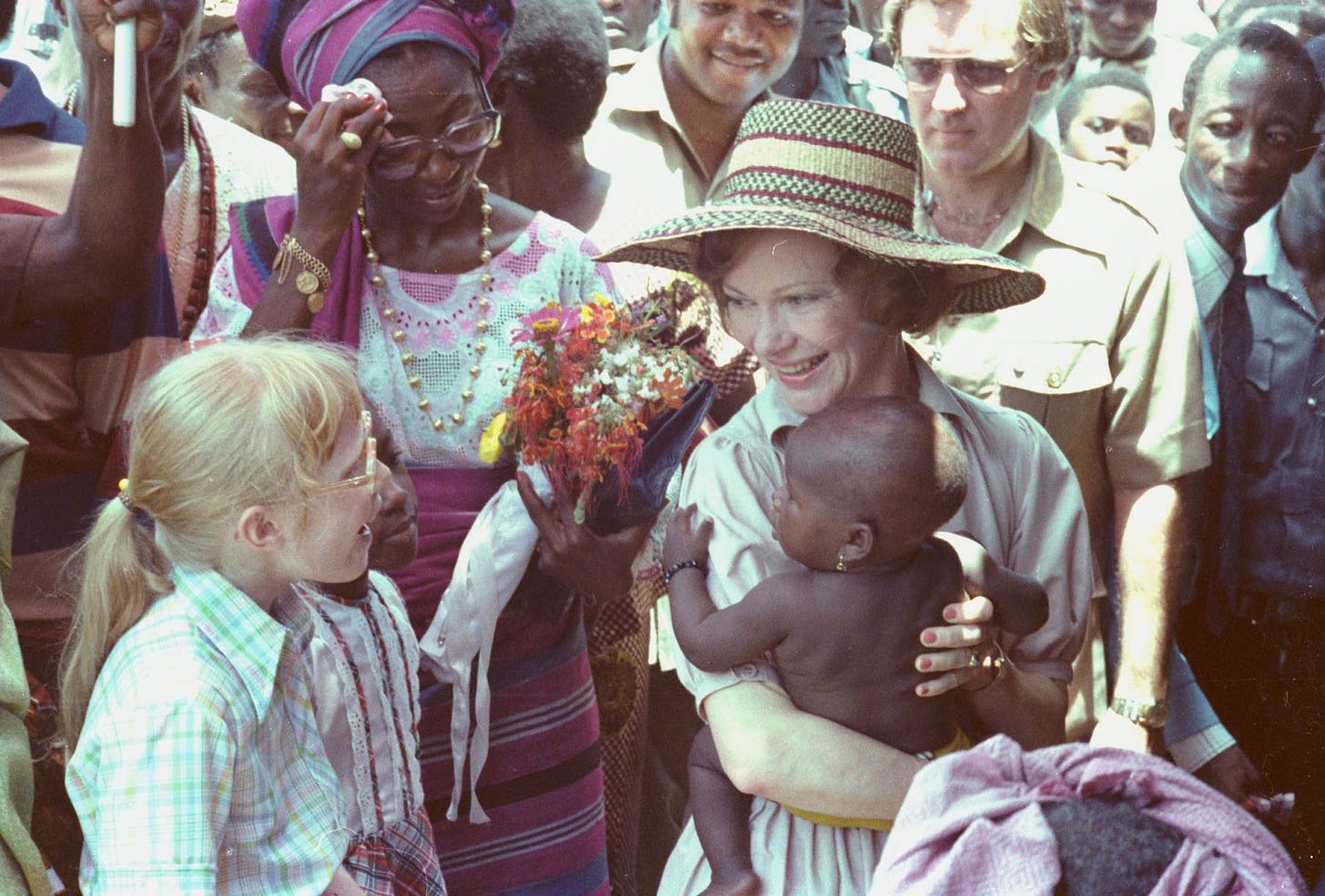Rosalynn Carter 'Put Her Humanity Into Action'
The former first lady is remembered for her precedent-setting, permanent office in the White House where she advocated for her causes.

Described as an “activist” first lady and a “true partner” to her husband Jimmy Carter, the 39th President of the United States, Rosalynn Carter changed the way future first ladies forever approached the position in the East Wing of the White House.
Rosalynn Carter, 96, died “peacefully” at her home Sunday in Plains, Georgia, surrounded by her family. It was announced on Friday that the former first lady entered hospice care and in May, she was diagnosed with dementia. Public visitation and a schedule of ceremonies were pending at the time of publication of this story.
When Rosalynn Carter stepped into the position of first lady after her husband, Jimmy Carter, a Democratic governor from Georgia who narrowly defeated incumbent Republican President Gerald Ford in 1976, she took the job seriously. …



